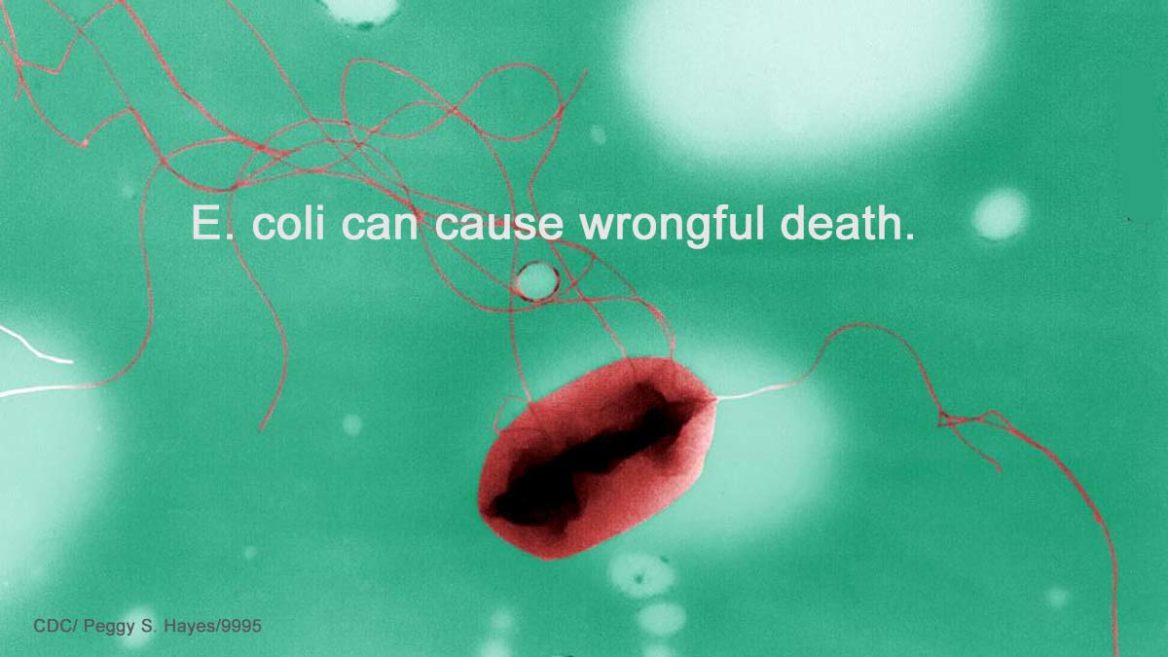“Families need to have a way to get answers after the wrongful death of a loved one from E. coli food poisoning. A lawsuit against a food company or restaurant is often the only way to uncover the truth.”Attorney Fred Pritzker

You Have the Legal Right to Sue a Company if a Family Member Dies from an E. coli Infection
If a restaurant, food manufacturer, distributor, grocery store or another company is linked to a Shiga toxin-producing Escherichia coli (STEC) wrongful death, the family has the legal right to sue for compensation. This is often the only way for a corporate wrongdoer to be held accountable.
In a recent case, our lawyers helped a family whose child contracted E. coli poisoning after attending a county fair. Tests on environmental samples (primarily animal barns) were positive for E. coli bacteria. The county and fair organizers still denied fault, but we prevailed and helped the family hold those responsible accountable. This case also sent a message to other counties that every measure needs to be taken to prevent little ones from getting sick.
What is E. coli Wrongful Death Law?
When someone who is part of an outbreak dies, the law allows the next of kin (spouse, children, parents, siblings, and more distant relatives) of the decedent (the person who died) to pursue a claim for money damages against any parties that may be liable (legally responsible). This is called a “wrongful death claim.”
An E. coli wrongful death lawsuit is brought against the person or company responsible for the contaminated food that caused the illness.
E. coli lawsuits involve strict liability. This means that a person or company will have to compensate the families of those killed in a foodborne outbreak if:
- The food was adulterated (by law E. coli is an adulterant); and
- The contamination caused the death. It is not necessary to prove that anyone was negligent or intended to contaminate the food.
A person or company can be liable even if the contamination did not happen when the food was under their control. For example, a restaurant is strictly liable for food they prepare. If an outbreak is linked to a restaurant, the restaurant is liable, even if health officials determine that the contamination happened on a farm field not owned by the restaurant. We have handled numerous cases like this.
As suggested above, multiple parties may be liable for a wrongful death. Parties liable may include anybody who handled the food from farm to fork:
- Owner and/or lessee of a farm or cattle ranch;
- Food processor;
- Food distributor;
- Food service company; and/or
- Restaurant or other eating establishment.
It is generally best for the family of the decedent if multiple parties are liable because there are more opportunities for obtaining compensation.
In one of our cases, a woman died after eating a salad tainted with E. coli bacteria at a restaurant. Our investigation found that spinach in the salad processed by a specific company was the contaminated food product responsible for her illness and resulting wrongful death. In this case, both the restaurant and the company could be sued.
Compensation from the Responsible Company
Compensation for the family generally includes the following:
- Medical expenses;
- Funeral expenses;
- Lost income (the amount of money that the loved one would have made if he or she had not been poisoned);
- Loss of advice, care, comfort and companionship of the family member; and
- Pain and suffering, but only in some states.
Our attorneys have helped many families like yours get financial help after losing a loved one. They have a national reputation in the area of food litigation and have been interviewed by The New York Times, The Wall Street Journal, Lawyers USA, and other publications. Submit our online form for a free consultation. Attorney Fred Pritzker is one of our lead lawyers for these cases.
